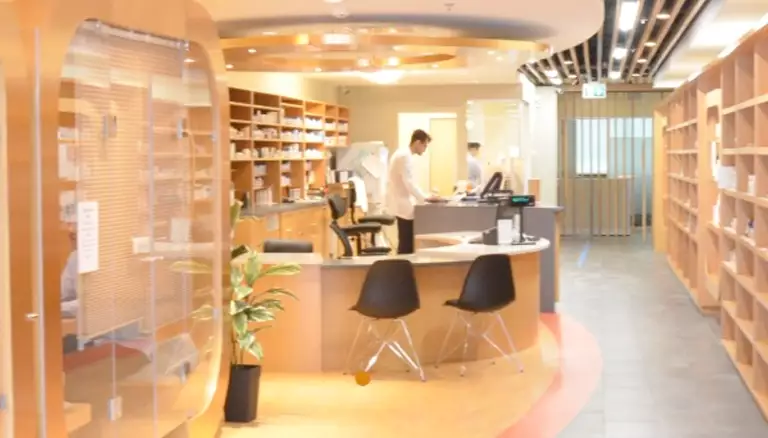
MARCH 2020 – It all started with a desire to “walk the talk” when it comes to patient-centred care, says Dr. Alan Low, Primacy Care Pharmacist and Pharmacy Lead at BioPro Biologics Pharmacy in Vancouver. “Most pharmacies have been stuck in a distribution model and I’ve always wanted to look at ways we can leverage our abilities, knowledge and accessibility as pharmacists to help patients in terms of improving their health and quality of life,” he says.
Based on his observations of patient care gaps—and years of experience working in hospital, industry, research and academia—Low decided to take a stab at community practice. He collaborated with two pharmacist colleagues to develop a true patient-centred pharmacy model and in 2017, BioPro Biologics opened to the public, steps away from Vancouver General Hospital.
Three years later, this independent pharmacy continues to provide appointment-based patient counselling and customized treatment plans for a variety of chronic conditions, and gets regular referrals from specialists, physicians and other pharmacists. Plus, pharmacy staff have been successfully billing for services since day one.

In choosing to target those with the greatest healthcare needs, Low and his team have focused on patients using biologics and specialty drugs, while also addressing other health conditions as needed. “The problem I saw was that pharmacy was just the distributor for these high-impact [specialty] drugs, with pharmacists doing little on the cognitive side, and I knew there was opportunity there,” he says. “I also noticed a segregation where you would go to pharmacy A for your regular medication and then pharmacy B for your specialty drugs and that just didn’t seem right.”
Low successfully lobbied to remove exclusive distribution models for certain specialty drugs, and raised awareness among patients on the role of the pharmacist, beyond just distribution. He expects there will be an increasing role for pharmacists in educating patients on medication options as governments and private payers cover more lower-priced biosimilars in the future. “Our strength as pharmacists is not in being retailers, but in being cognitive clinicians who can help patients understand their [medication] options so they’re not overwhelmed,” he says.
These days, Low says some of the most popular pharmacy services at BioPro include drug optimization and deprescribing, working with patients and their prescribers to assess the safety and efficacy of drug regimens, and making changes accordingly.
In addition to helping patients better manage a variety of chronic diseases conditions, BioPro staff also consult on skin care treatments (the pharmacy offers compounding services) and medical cannabis. As early technology adopters, they also guide patients in using helpful apps or devices for medication reminders. “We’ve incorporated services in the pharmacy based on patient need and cater to the areas people have asked us questions about,” says Low.
In the foreseeable future, he hopes others will follow BioPro’s example by implementing other truly patient-centred community pharmacies in Canada. “There is a viable cognitive clinical practice that can occur in the community setting that is very satisfying,” says Low. “It’s all about taking incremental steps to determine how pharmacists can use their skillsets to better care for patients.”
As part of its annual Changing Face of Pharmacy report, the Canadian Foundation for Pharmacy...
The federal and provincial governments have enacted a wide range of temporary laws, regulations...